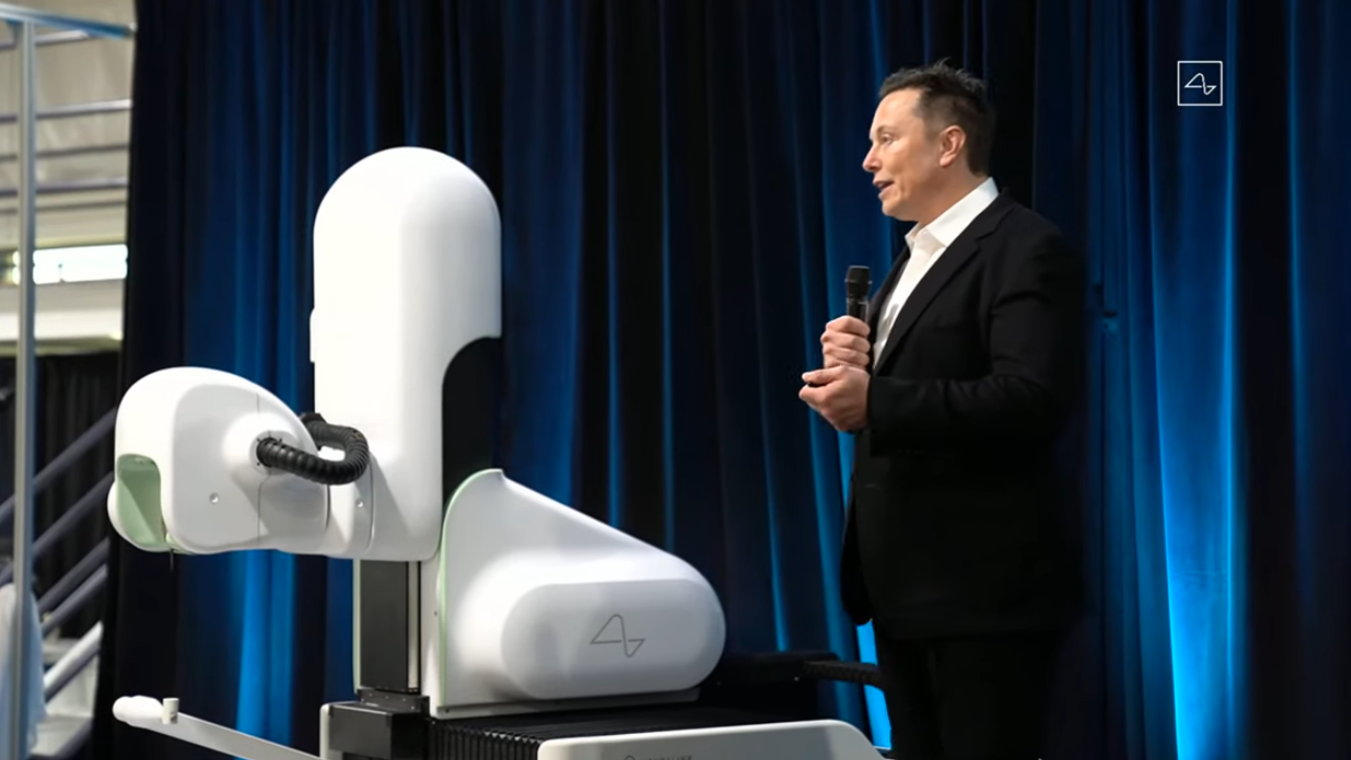Elon Musk's Neuralink has performed its first human brain implant, and we're a step closer to having phones inside our heads
'Imagine if Stephen Hawking could communicate faster than a speed typist'

Neuralink, Elon Musk's brain interface company, achieved a significant milestone this week, with Musk declaring on X (formerly Twitter), "The first human received an implant from yesterday and is recovering well."
Driven by concerns that AI might soon outpace (or outthink) humans, Musk first proposed the idea of a brain-to-computer interface, then called Neural Lace, back in 2016. envisioning an implant that could overcome limitations inherent in human-to-computer interactions. Musk claimed that an interface that could read brain signals and deliver them directly to digital systems would massively outpace our typical keyboard and mouse interactions.
Four years later, Musk demonstrated early clinical trials with an uncooperative pig, and in 2021 the company installed the device in a monkey that used the interface to control a game of Pong.
It was, in a sense, all fun and games – until this week, and Musk's claim of a human trial and the introduction of some new branding.
Neuralink's first product is now called 'Telepathy' which, according to another Musk tweet, "Enables control of your phone or computer, and through them almost any device, just by thinking."
As expected, these brain implants are not, at least for now, intended for everyone. Back in 2020, Musk explained that the intention is "to solve important spine and brain problems with a seamlessly implanted device.” Musk noted this week that "Initial users will be those who have lost the use of their limbs. Imagine if Stephen Hawking could communicate faster than a speed typist or auctioneer. That is the goal."
What is Neuralink Telepathy?
Neural link devices like Telepathy are bio-safe implants comprising small disk-like devices (roughly the thickness of four coins stuck together) with ultra-fine wires trailing out of them that connect to various parts of the brain. The filaments read neural spikes, and a computer interface interprets them to understand the subject's intentions and translate them into action on, say, a phone, or a desktop computer. In this first trial, Musk noted that "Initial results show promising neuron spike detection," but he didn't elaborate on whether the patient was able to control anything with his mind.
Get daily insight, inspiration and deals in your inbox
Sign up for breaking news, reviews, opinion, top tech deals, and more.
Musk didn't describe the surgical implantation process. Back in 2020, though, Neuralink introduced its Link surgery robot, which it promised would implant the Neuralink devices with minimal pain, blood, and, we're guessing, trauma. Considering that the implant is under the skin and skull, and sits on the brain, we're not sure how that's possible. It's also unclear if Neuralink used Link to install 'Telepathy.'
The new branding is not that far-fetched. While most people think of telepathy as people transmitting thoughts to one another, the definition is "the communication of thoughts or ideas by means other than the known senses."
A phone in your head
Still, Musk has a habit of using hyperbole when describing Neuralink. During one early demonstration, he only half-jokingly said "It’s sort of like if your phone went in your brain.” He also later added that, "In the future, you will be able to save and replay memories."
With the first Neuralink Telepathy device successfully installed, however, Musk appears to be somewhat more circumspect. There was no press conference, or parading of the patient before the reporters. All we have are these few tweets, and scant details about a brain implant that Musk hopes will help humans stay ahead of rapidly advancing AIs.
It's worth noting that for all of Musk's bluster and sometimes objectionable rhetoric, he was more right than he knew about where the state of AI would be by 2024. Back in 2016, there was no ChatGPT, Google Bard, or Microsoft CoPilot. We didn't have AI in Windows and Photoshop's Firefly, realistic AI images and videos, or realistic AI deepfakes. Concerns about AIs taking jobs are now real, and the idea of humans falling behind artificial intelligence sounds less like a sci-fi fantasy and more like our future.
Do those fears mean we're now more likely to sign up for our brain implants? Musk is betting on it.
You might also like

A 38-year industry veteran and award-winning journalist, Lance has covered technology since PCs were the size of suitcases and “on line” meant “waiting.” He’s a former Lifewire Editor-in-Chief, Mashable Editor-in-Chief, and, before that, Editor in Chief of PCMag.com and Senior Vice President of Content for Ziff Davis, Inc. He also wrote a popular, weekly tech column for Medium called The Upgrade.
Lance Ulanoff makes frequent appearances on national, international, and local news programs including Live with Kelly and Mark, the Today Show, Good Morning America, CNBC, CNN, and the BBC.